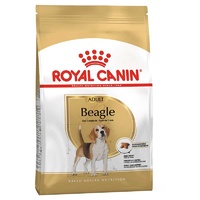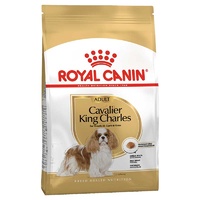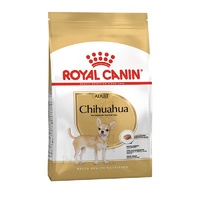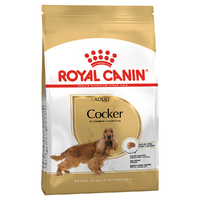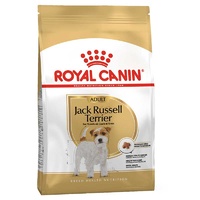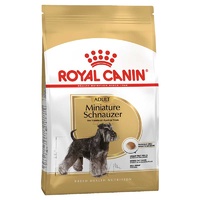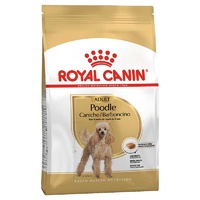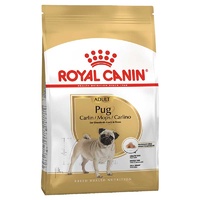Related Blog Articles
The Science Of Dog Food

Science-based dog foods use studies and trials to back their dog foods.
What’s science got to do with it?
It’s important to give your best friend the very best nutrition to give them a long and happy life. But with so many options available, how do you know what is best for them?
A diet backed by science and research is an option chosen by many. There are numerous brands on the market that have many years of research and investigation behind them. Brands such as Hill’s Science Diet, Royal Canin and Advance are among the leaders in scientifically formulated dog foods.
But what goes into these diets? What do these brands consider when deciding what is a nutritional and balanced diet? We aim to help make this a little clearer through this series of articles, and look at the different types of dog food available and how they may be of benefit.
A balanced diet:
A complete and balanced diet for an adult dog includes:
Quality protein that provides essential amino acids with a high digestibility to promote:
- Healthy skin and coat (30% of daily protein intake is used to maintain this)
- Strong joints and lean muscles to maintain mobility
- Strong immune system, as well as healthy teeth and gums
Fats and essential fatty acids for:
- Concentrated energy source, and for palatability
- Omega 3 & omega 6 fatty acids
Carbohydrates to deliver:
- Sustained energy
- Fibre for digestive health and smaller, firmer stools
Vitamins and minerals to support wellbeing and physiological functions
Life’s most essential nutrient –water!
Not all dogs are the same!
You may realise already that the needs of a puppy will be different to the needs of an adult dog. And the needs of an adult may differ to that of a senior dog. Then there are differences in breed and size that affect nutritional requirements.
To simplify, we’ll start by looking at adult dogs, and the pet health areas that science formula's take into consideration.
General Health Considerations
Throughout the life-stage of adult maintenance, there are a number of pet health areas that should be considered. All pets are individuals and they should receive a diet that is tailored for their individual requirements. General health considerations for adult dogs include:
•Skin and coat health: a diet that includes skin and coat nutrients such as protein, essential fatty acids, vitamins and minerals to ensure a healthy skin free of scurf and a glossy coat. Hair comprises more than 90% protein and contains high amounts of the amino acids methionine and cysteine.
•Gastrointestinal health: a diet that provides appropriate dietary fibre for optimal digestive health and stool quality. Consideration should also be given to supporting the beneficial intestinal bacteria.
•Joint health: the incidence of canine osteoarthritis is more prevalent with increasing age of the pet. Diets may contain joint supporting nutrients that help protect the joint cartilage such as chondroitin, glucosamine or stabilised Green Lipped Mussel Powder.
•Dental and oral health care: 80% of dogs aged over 3 years have gum disease.1 While daily tooth brushing is considered the gold standard in gum disease prevention, diets with specially shaped dental kibbles and active ingredients that help prevent tartar build-up may be offered. Dental treats that help to keep the teeth clean may also be a helpful addition. While dental care is a consideration for dogs of all sizes, special care is needed for toy and small breed dogs as they usually experience more problems with tooth and gum disease than large breed dogs.
• Immune system health: dietary antioxidants to help combat DNA damage from free radicals as a pet ages.
• Urinary tract health: small breed dogs tend to have higher prevalence of lower urinary tract disease (LUTD) than large breed dogs. A diet that is designed to reduce the risk of LUTD is beneficial. The feeding of wet food helps promote optimal water turnover.
• Heart Health: Cardiac disease is estimated to be the third most common cause of death in dogs and cats. Growing evidence suggests that the inclusion of certain dietary nutrients such as vitamin E, taurine and arginine can have a positive impact on heart health in both dogs and cats.
In the articles below we aim to look at some of the specific science based formulations and investigate further why they may be of benefit for certain dogs.
Senior Science
The aim of feeding elderly, but otherwise healthy pets is to slow or prevent the progression of changes associated with ageing and to maintain a good quality of life.
Breed Specific Science Food
Due to the nutritional requirements of each breed some science based companies have specifically tailor-made nutrition for a wide range of specific breeds of dogs and cats.
Science of Skin & Food Sensitivities
If you notice your dog scratching, itching, licking or rubbing more than normal, then he might have a skin condition.







